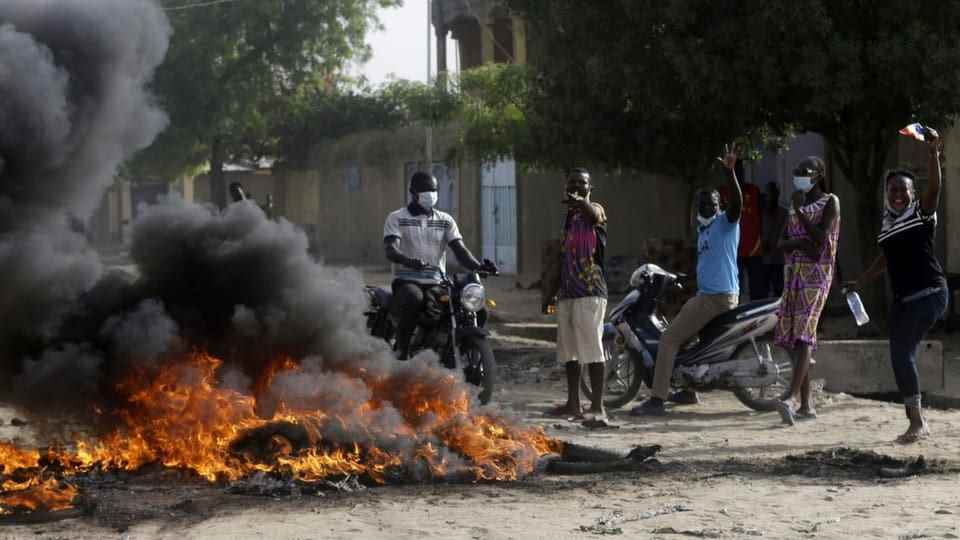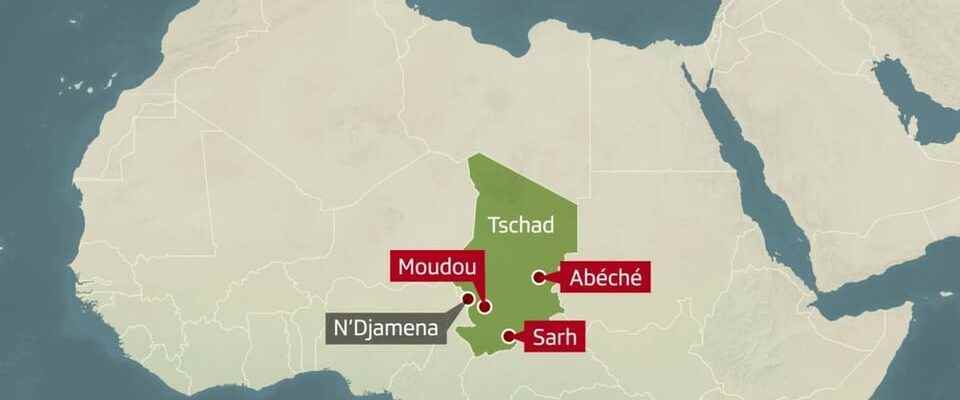Path to national reconciliation: In the Central African country of Chad, the transitional government supported by the military has signed a peace agreement with certain rebel groups. These talks were initiated by Mahmat Idriss Déby. He is the son of longtime ruler Idriss Déby. The largest rebel group, the Fact (Front for Change and Harmony in Chad), did not sign the agreement.
Legend:
The capital of Chad is N’Djamena.
srf
Death of the President: In April 2021, then-President Idriss Déby died officially after visiting the frontline in northern Chad. His son was installed by the military as interim president. The military government spoke of an 18-month transition phase to democratic rules and civilian government.
Contested Power: In Chad, rebel groups were fighting the government even before the president’s death. Deby sen. was seen in Western countries as an ally in the fight against the radical Islamic Boko Haram on Lake Chad and against groups in the Sahel zone that are allied with al-Qaeda and the IS militia. But the human rights group Human Rights Watch accuses Deby of oppression and violations of human rights in his own country.
At the beginning of his presidency, many were convinced that Mahmat Déby would step down from power.
National Dialogue: Within the next two weeks, 1,400 representatives from Chadian society are to meet and negotiate the country’s urgent problems. “Officially, this national dialogue concludes the transition process,” says Helga Dickow. She is a conflict researcher at the Arnold Bergstrasser Institute in Freiburg im Breisgau and her research focus is Chad. “There should be a civil, elected government.”

Legend:
In 2021, popular protests erupted when the military council appointed the late president’s son interim president.
Keystone/AP Photo/Sunday Alamba
Participants in the inclusive dialogue: For the political elite, all Chadian social classes are represented in the body. “It’s actually an impressive list: parties, representatives of the diaspora, political-military movements and religious circles take part,” says Dickow.
However, the question arises as to where these forces stand politically. Both the representatives of the civilian population and the fact rebels, who refuse to engage in dialogue, believe that only groups close to both the government and the old political forces take part in the national dialogue.
In Chad, people sometimes no longer speak of a dialogue, but of a monologue.
Transfer of power to a civilian government: «At the beginning of his presidency, many were convinced that Mahmat Deby would give up power. But the longer time goes by, the greater the doubts become,” says Dickow.
The representatives of civil society and the politico-military groups are therefore demanding that the interim military government under the leadership of the military council no longer stand for election. But this does not want to anticipate the dialogue and wants to let the panel decide. Dickow makes it clear that if the body is actually made up of supporters of the current government, the current government will stay in power. “The son can simply found a party.”
sham democratization: “In Chad, people sometimes no longer speak of a dialogue, but of a monologue,” because observers assume that the ruling elite is simply dividing power among themselves, says Dickow. “As long as Chad is in the hands of a certain elite group, redistribution will be out of the question.”
